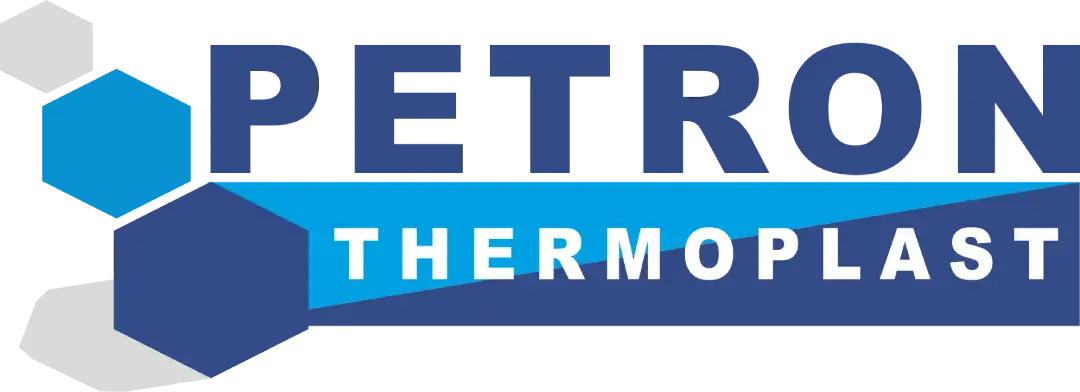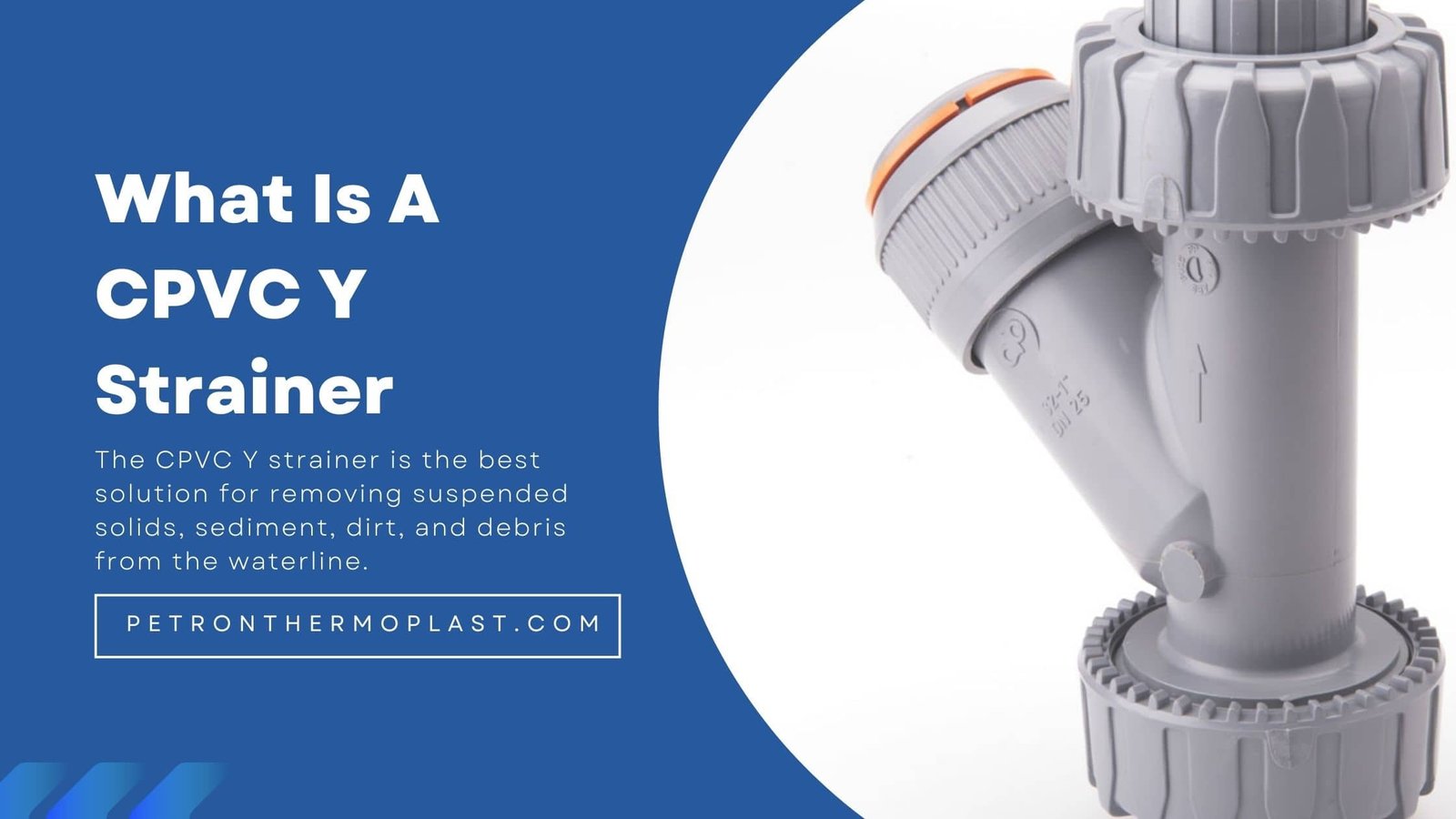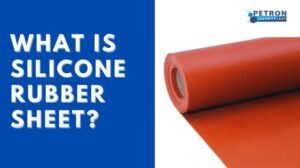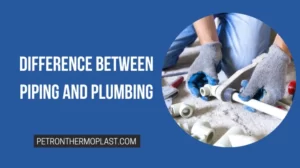What Is Y Strainer?
The CPVC Y strainer is the best solution for removing suspended solids, sediment, dirt, and debris from the waterline. It removes dust from water and extends the life of other products in your bathroom and kitchen by reducing the frequency of service.
How Does a Y Strainer Work?
A Y strainer, also known as a wye strainer, is a mechanical device that removes solids and other particles from fluids. Those strainers are used in multiple fluid control applications to ensure that particles harm no downstream components in the fluid. This article will look at their design, use cases, mesh filter sizing, materials, and cleaning.
Y Strainer Design:
As the name implies, a Y strainer is shaped like a “Y” and is used to filter or strain particulates from steam, gas, or liquid. This mechanical straining process enables a filter element made of mesh, perforated metal, or a wedge wire straining element. A wire mesh is the most common type of straining element. Some models also include “blow-off valves,” which make cleaning easier in applications with many dirt blowing.
The strainer itself is a compact Y shape. Because the fluid flows through the strainer with minimal change of direction, the Y shape strainer has better flow characteristics than a T shape strainer.
Why Do You Need a Y Strainer?
Y strainers are essential anywhere clean fluids are required. While clean fluids can improve the reliability and lifespan of any mechanical system, they are especially important with solenoid valves. It is because solenoid valves are extremely sensitive to dirt and will only properly function when exposed to clean liquids or air.
Any solids that enter the stream can cause disruption and even damage the entire system. As a result, a Y strainer is an excellent complement. They not only protect the performance of solenoid valves, but they also help to protect other types of mechanical equipment, such as:
- Pumps,
- Turbines,
- Nozzles for spray,
- Exchangers of heat,
- Condensers,
- Traps for steam,
- Meters.
A simple Y strainer can protect these components, which are among the most valuable and expensive parts of the pipeline, from pipe scale, rust, sediment, or extraneous debris. Y strainers are available in various designs (and connection types) to suit any industry or application.
In-Line Horizontal or Vertical Installation:
In either horizontal or vertical installation, line fluid flow is diverted through the interior of the strainer basket to fully entrap sediment, dirt, and debris.
Construction with Rugged PVC or CPVC:
A computer-engineered design places strength where it is most needed. Chemical and corrosion resistance is exceptional in PVC and higher heat handling CPVC materials.
Optional Special PVC Clear-Body:
It allows for easy monitoring of sediment accumulation in the strainer and visibility of internal flow. (Only in socket style)
Convenient Basket Strainer Removable:
The strainer basket easily unscrews from Y-body for quick strainer screen cleaning.
Assortment of PVC, CPVC, and Stainless Steel Strainer Screens:
Standard Y-STRAINERS are made up of 1/32″ perforation (20 Mesh) PVC screens for PVC Strainers and CPVC screens for CPVC Strainers. Perforation sizes and 316 Stainless Steel Mesh Screens are available as options.
Optional or standard Magnetic Drain Plug for Quick Flushing:
The standard plug is easily removed for quick strainer flushing or installation of a bleed-off valve. A magnetic plug, which is optional, traps ferrous metal particles inside the strainer.
Stock Y-Strainers are built with standard 1/32″ (20 mesh) perforated PVC or CPVC screens. PVC, CPVC, and 316 stainless steel screens are available in the mesh sizes listed below. Perforated PVC and CPVC screens are available, while wire mesh stainless steel screens are available. Additional stainless steel mesh screen sizes, down to 400 mesh, can be custom ordered.
CV Values:
| Y-Strainers Cv | ||||
| Nominal Size | Plastic Strainer Mesh | |||
| 8 | 12 | 20 | 30 | |
| 1/2 | 5.5 | 5.4 | 5.3 | 5.2 |
| 3/4 | 8.2 | 7.8 | 7.5 | 7.2 |
| 1 | 14.3 | 13.9 | 13.6 | 13.3 |
| 1-1/4 | 33.6 | 32.9 | 29.4 | 25.4 |
| 1-1/2 | 43.8 | 41.6 | 33.0 | 32.1 |
| 2 | 50.6 | 50.0 | 49.6 | 48.8 |
| 3 | 75.2 | 74.6 | 74.0 | 73.4 |
| 4 | 169.5 | 169.0 | 168.8 | 168.0 |
Drain Plug Tap Size for Bleed-Off Valve:
| Y-Strainer Size | Tap Size (NPT) |
| 1/2 | 1/4 – 18 |
| 3/4 | 1/4 – 18 |
| 1 | 3/8 -18 |
| 1-1/4 | 1/2 – 14 |
| 1-1/2 | 1 – 11-1/2 |
| 2 | 1 – 11-1/2 |
| 3 | 1 – 11-1/2 |
| 4 | 1 – 11-1/2 |
Y-Strainer Threaded Dimensions:
| Nominal Size | Dimension Reference (inches, ±1/16) | Approx. Wt. (Lbs.) | ||||||
| A1 | A | D | E | B | C | PVC | CPVC | |
| 1/2 | 4-7/8 | 3-1/16 | 2-1/2 | 1-5/8 | 3-5/8 | 5-1/16 | .31 | .33 |
| 3/4 | 5-15/16 | 3-11/16 | 3 | 2 | 4-3/8 | 5-13/16 | .50 | .53 |
| 1 | 7-1/16 | 4-7/16 | 3-5/8 | 2-1/4 | 5-3/16 | 7 | .85 | .90 |
| 1-1/4 | 8-3/8 | 5-5/16 | 4-1/4 | 2-13/16 | 6 | 7-15/16 | 1.21 | 1.28 |
| 1-1/2 | 9-3/8 | 6 | 4-7/8 | 3-3/16 | 6-15/16 | 8-13/16 | 1.66 | 1.76 |
| 2 | 12 | 7-5/8 | 6-3/16 | 3-1/2 | 8-1/8 | 10-1/8 | 2.96 | 3.10 |
| 3 | 15-5/16 | 9-11/16 | 7-5/8 | 5-1/8 | 11 | 14-1/4 | 5.34 | 5.64 |
| 4 | 19-13/16 | 12-1/2 | 9-7/8 | 6-9/16 | 14 | 14-3/8 | 9.97 | 10.45 |
Y-Strainer Socket Dimensions:
| Nominal Size | Dimension Reference (inches, ±1/16) | Approx. Wt. (Lbs.) | ||||||
| A1 | A | D | E | B | C | PVC | CPVC | |
| 1/2 | 4-5/8 | 3-1/16 | 2-1/2 | 1-5/8 | 1-5/8 | 3-3/8 | .31 | .33 |
| 3/4 | 5-3/4 | 3-11/16 | 3 | 2 | 2 | 4 | .50 | .53 |
| 1 | 6-7/8 | 4-7/16 | 3-5/8 | 2-1/4 | 2-1/2 | 4-3/4 | .85 | .90 |
| 1-1/4 | 8-5/32 | 5-5/16 | 4-1/4 | 2-13/16 | 3-1/16 | 5-9/16 | 1.21 | 1.28 |
| 1-1/2 | 9-1/8 | 6 | 4-7/8 | 3-3/16 | 3-9/16 | 6-5/16 | 1.66 | 1.76 |
| 2 | 11-3/4 | 7-5/8 | 6-3/16 | 3-1/2 | 4-1/2 | 7-1/2 | 2.96 | 3.10 |
| 3 | 15 | 9-11/16 | 7-5/8 | 5-1/8 | 6-9/16 | 10-5/16 | 5.34 | 5.64 |
| 4 | 19-11/16 | 12-1/2 | 9-7/8 | 6-9/16 | 8-5/8 | 13-1/8 | 9.97 | 10.45 |
Why Is A Mesh Filter Required For A Y Strainer?
Of course, the CPVC Y strainer wouldn’t be able to do its job without a properly sized mesh filter. To find the best strainer for your project or job, you must first understand the fundamentals of mesh and screen sizing. The dimension of the openings in the filter through which debris passes is described using two terms. The first is micron, and the second is mesh size. Even though these are two different measurements, they describe the same thing.
Strainer Screen Mesh Options:
| U.S. Standard Mesh Sieve No. | Sieve Opening Size (inch) | Perforation Designation (inch) |
| 8 | 0.094 | 3/32 |
| 12 | 0.062 | 1/16 |
| 20 | 0.033 | 1/32 |
| 30 | 0.024 | Use Mesh No. |
What Are The Salient Features of Y Strainer?
Feature:
- Rated to 150 PSI
- Standard 1/32″ perf screen
- All-Plastic Construction
- Simple Screen Access and
- People can use it horizontally or vertically
- Stainless Steel
- Screens for strainers.
Economic Security: Y strainers guard against damage to piping system components caused by dirt or debris in the process media. They are less expensive than other strainers and are lightweight and compact. Because they can frequently be supported solely by the pipeline, they can be used in applications where other strainers cannot.
Rugged Plastic Screens: Y Strainers come with a 1/32 inch plastic screen “plastic perforated screen for superior strength. This screen is ultrasonically welded rather than glued. Screens made of type 316 stainless steel are also available in openings ranging from 1/2 to 1 inch “down to a superfine mesh of 325. All screens have an open area that is at least twice the cross-sectional area of the equivalent pipe size to minimise pressure drop.
Easy Clean Out: All sizes of Y Strainers include a heavy-duty hex cap that allows for the quick and easy removal of the strainer screen when cleaning is required.
Easy Adaptable Design: Y Strainers are designed to work equally well in horizontal or vertical positions, simplifying piping system layout.
All Plastic Construction: Plastic Y Strainers will never rust or corrode. Therefore, they don’t require painting or coating to withstand corrosive environmental conditions.
Dimensions – Inches / Millimeters:
| Size | A | B | C | D | E | F | G | H | J | Weight (lb / kg) | |
| Skt / Thd | Flg | ||||||||||
| 1/2″ | 3.38 / 86 | 1.38 / 35 | 2.25 / 57 | 1.50 / 38 | N/A | 0.56 / 14 | 1.00 / 25 | 2.13 / 54 | 2.50 / 64 | 0.25 / .11 | N/A |
| 3/4″ | 4.18 / 106 | 1.69 / 43 | 2.88 / 73 | 2.00 / 51 | N/A | 0.81 / 21 | 1.25 / 32 | 2.75 / 70 | 3.00 / 76 | 0.63 / .29 | N/A |
| 1″ | 5.19 / 132 | 2.00 / 51 | 3.63 / 92 | 2.16 / 55 | N/A | 1.00 / 25 | 1.50 / 38 | 3.30 / 84 | 3.32 / 84 | 0.88 / .40 | N/A |
| 1-1/4″ | 6.63 / 168 | 2.63 / 67 | 4.50 / 114 | 2.94 / 75 | N/A | 1.25 / 32 | 2.00 / 51 | 4.50 / 114 | 4.45 / 113 | 1.75 / .80 | N/A |
| 1-1/2″ | 6.63 / 168 | 2.63 / 67 | 4.50 / 114 | 2.94 / 75 | N/A | 1.56 / 40 | 2.00 / 51 | 4.50 / 114 | 4.45 / 113 | 1.63 / .74 | N/A |
| 2″ | 7.63 / 194 | 3.38 / 86 | 5.38 / 137 | 3.75 / 95 | 11.00 / 279 | 2.00 / 51 | 2.38 / 60 | 5.06 / 129 | 4.88 / 124 | 3.00 / 1.4 | 5.00 / 2.3 |
| 2-1/2″ | 10.31 / 262 | 4.69 / 119 | 7.25 / 184 | 5.25 / 133 | N/A | 2.90 / 74 | 3.50 / 89 | 6.60 / 168 | 6.54 / 166 | 7.75 / 3.5 | N/A |
| 3″ | 10.31 / 262 | 4.69 / 119 | 7.25 / 184 | 5.50 / 140 | 14.37 / 365 | 2.90 / 74 | 3.50 / 89 | 6.60 / 168 | 6.54 / 166 | 7.50 / 3.4 | 12.25 / 5.7 |
| 4″ | 12.81 / 325 | 5.75 / 146 | 8.88 / 226 | 6.18 / 157 | 17.73 / 450 | 3.78 / 96 | 4.25 / 108 | 8.00 / 203 | 8.58 / 218 | 9.50 / 4.3 | 17.50 / 8.0 |
How Do You Clean a Y Strainer?
The frequency with which you must clean your component is determined by the process you are using, the mesh size, and the materials you are filtering. As you begin to clean, remember to disconnect all valve connections on both sides of the Y strainer to relieve pressure. To access the filter, loosen and remove the plug at the end of the filter leg. Empty the filter of all collected material and debris, clean it, and replace it.
Petron Thermoplast makes good quality CPVC products. All our products are highly efficient and durable. You can purchase our CPVC Y strainer at a reasonable price.
You can also read – Acrylic Plastic Sheet | Polycarbonate Sheet





Pingback: 온라인 바카라
Pingback: 토토 보증업체
Pingback: ทางเข้าpg
Pingback: sagame
Pingback: Thai Take out
Pingback: chat rooms
Pingback: Engineering Technicians
Pingback: ข้อดีหากเลือก แทงบอลออนไลน์ กับ เว็บบอล auto LSM99 มีอะไรบ้าง ?